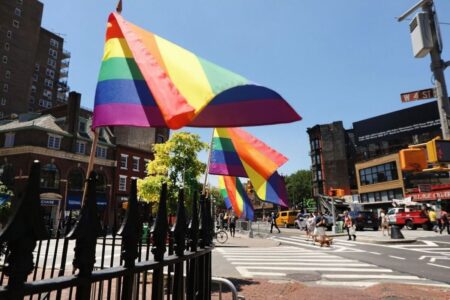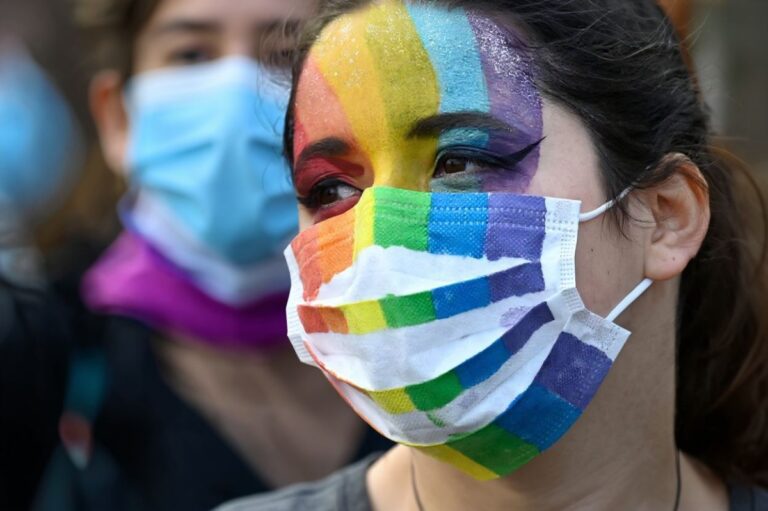
When considering where to study, LGBTQ students are bound to find different levels of tolerance across the world.
There are many countries that still discriminate and persecute people for their sexual preferences.
But on the bright side, there are more liberal countries too. In these places, you are free to dress, express, and love beyond binary codes.
Here, we look at LGBTQ-friendly countries with progressive attitudes and laws towards the community — they provide peace of mind for queer students who want to realise their dreams in an accepting environment.
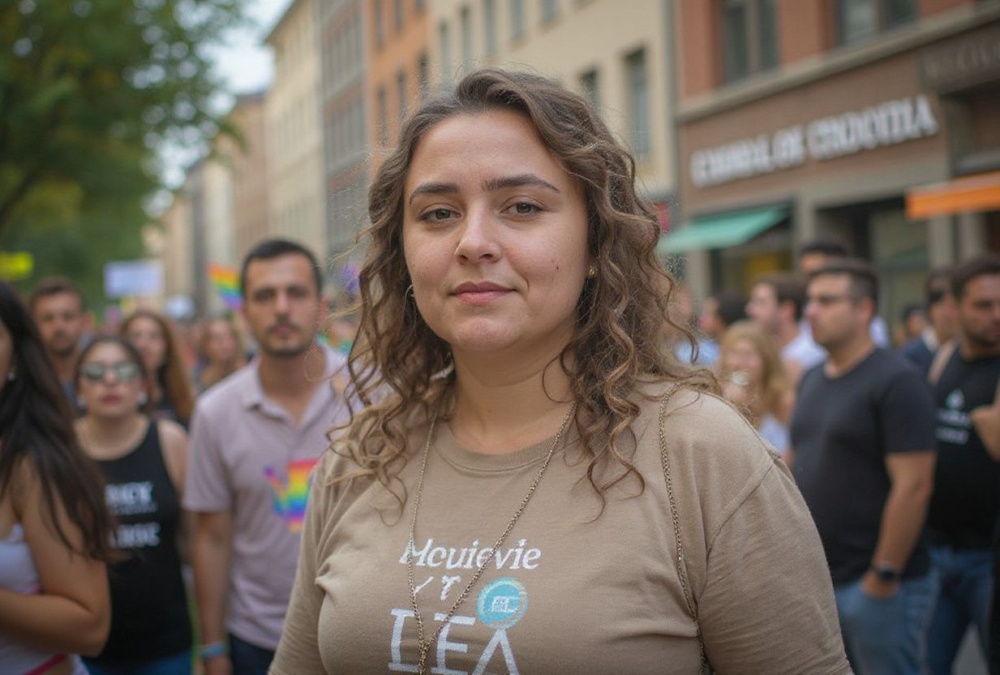 Gay pride events are an expression of freedom in countries that accept LGBTQ people.
Gay pride events are an expression of freedom in countries that accept LGBTQ people.
The LGBTQ-friendly countries to live your best student life in
Canada
National diversity is a point of pride in Canada, which has long accepted the LGBTQ community. It enacted anti-discrimination laws for LGBTQ individuals in the mid-90s and legalised same-sex marriage in 2003, which creates a safe space for queer students.
The University of Toronto’s LBGTOUT, the oldest LGBTQ student organization in Canada, provides peer support and resource referral, as well as hosts social events like drag shows and open mics throughout the academic year. The University of British Columbia has also recently invested 18,801 Canadian dollars in community-led 2SLGBTQIA+ equity projects, including a website that increases the accessibility of 2SLGBTQIA+-related research opportunities and mental health care.
United Kingdom
In England and Ireland, the Equality Act 2010 keeps LGBTQ rights protected. Transgender people can legally change their gender, while same-sex couples can enter civil partnerships and adopt (in England and Wales).
Students throughout the UK will find the support they need too. As the university with the largest international student body at 52.6%, the University College of London (UCL) has multiple internal organisations offering support, advice, and guidance to anyone at UCL who identifies as LGBTQ+ or would like to be a better ally.
Daniel, a student at University College Dublin who was born female but identifies as a male, says: “UCD had no problem recognising me as a man and accepting my name. Initially, I had not planned on telling anyone and didn’t think I would talk about it but, as I grew in confidence, I also realised that people here don’t mind what your gender identity or sexuality is.”
 A group known as Dykes on Bikes headed to the start of the Sydney Gay and Lesbian Mardi Gras Parade in Sydney in 2015.
A group known as Dykes on Bikes headed to the start of the Sydney Gay and Lesbian Mardi Gras Parade in Sydney in 2015.
Australia
LGBT folk in Australia are protected from discrimination, with same-sex marriage legalised in 2017. Gay couples enjoy domestic partnership rights and may adopt children. Not to forget, Australia hosts some of the largest pride parades and events on its side of the world.
RMIT University, which reported over 26 thousand international students in 2022, even has a Queer Department that solely focuses on representing, advocating for and empowering the LGBT community.
New Zealand
A global leader in establishing gay rights, New Zealand affords equal opportunity to members of the LGBTQ community and welcomes all forms of gender expression. Most Kiwis are therefore open and non-discriminatory, allowing all students to pursue their education without fear.
At the Auckland University of Technology (AUT), students can find a dedicated Rainbow Student Support team, rainbow safe spaces, and student clubs and networks to find their community and any support they need. This includes a rainbow community closet and assistance with completing a name change application.
Denmark
In 1989, Denmark became the first country to recognise gay unions when it allowed same-sex couples to be registered as domestic partners. In 2023, the country placed third for being the most LGBT+-friendly country in Europe, with a high degree of legal protection for LGBT+ persons. It also provides comprehensive sex education in schools, which produces informed citizens.
Queer Union Københavns Universitet (QUKU) at the University of Copenhagen is one of the many student organisations in the higher education scene that supports LGBT students, though QUKU takes it a step further and maintains its support for the school’s alumni too.
Spain
Its Pride parades are vibrant and famed the world over, but Spain also has legislative rights in place for LGBTQ folks. It legalised same-sex marriage in 2005, making it a leader in the European gay rights scene.
The University of Valencia is one such example of a university dedicated to creating a safe space for its students and beyond. Earlier in 2024, they celebrated International Day Against LGBTQIA+phobia with a campaign aiming to draw attention to the university as a safe, equal, and inclusive space by highlighting the resources available to support diversity, especially among students.
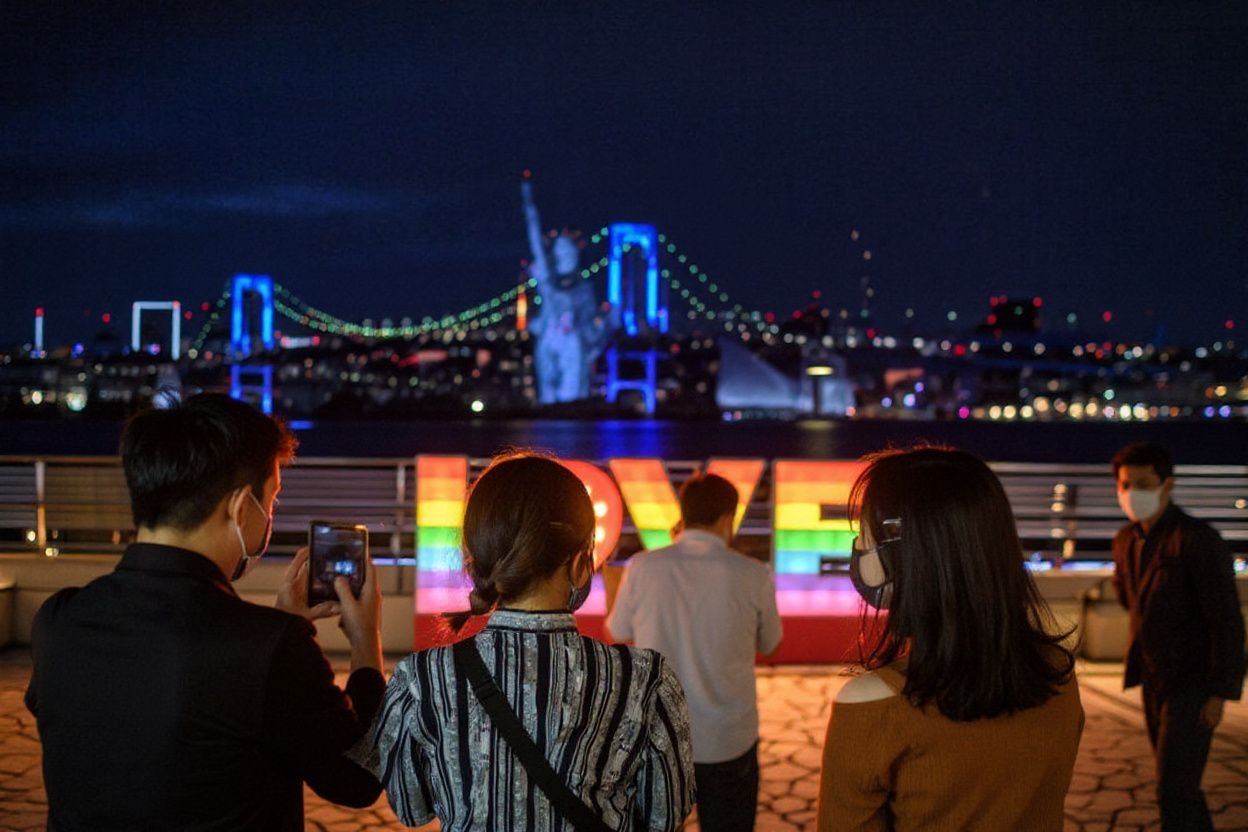 People wearing face masks take pictures at Odaiba area of Tokyo. Japan is the latest country to recognise same-sex unions.
People wearing face masks take pictures at Odaiba area of Tokyo. Japan is the latest country to recognise same-sex unions.
Japan
Japan’s steady move towards becoming a more LGBT-friendly country is one that many are keeping an eye on. In early March 2024, the Sapporo High Court said not allowing same-sex couples to marry violates their fundamental right to have a family and called for urgent government action to address a lack of laws allowing same-sex unions.
In 2019, Osaka University became the first university to receive a perfect score on PRIDE INDEX 2019, an index established by work with Pride, a group that supports the promotion and establishment of diversity management for the LGBT community in the workplace. The index evaluates endeavours regarding LGBT, earning the university the distinction of a “gold” rating.
Sweden
Civil same-sex unions have been recognised for decades, but same-sex marriage was only legalised here in 2009. It has been rated the most LGBTQ-friendly country on the LGBTQ+ Danger Index. With its abundant natural beauty and high standard of living, Sweden is surely one of the top choices for students of any orientation.
The University of Gothenburg, located in the second largest city of Sweden, right after Stockholm, is participating in Gothenburg and Västra Götaland’s West Pride, an arts and culture festival that creates safe meeting places for LGBTQI people and raises norm criticism and LGBTQI people’s life situation. Here, the university will be raising rainbow flags outside university buildings and organising seminars and other activities during the festival.
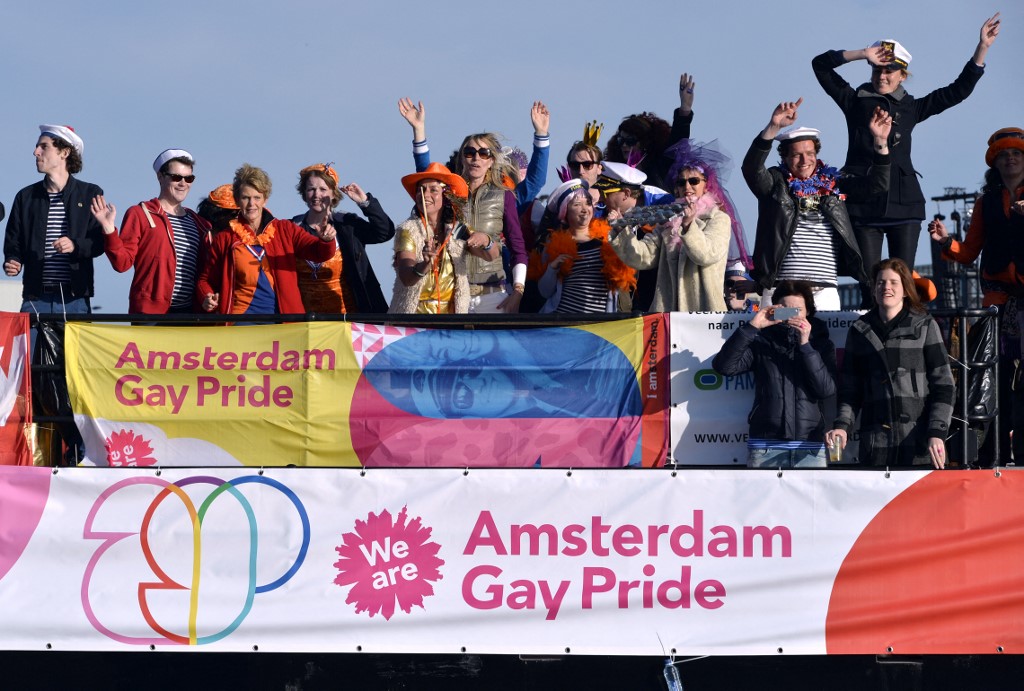 Amsterdam Pride is a citywide queer-festival held annually at the centre of Amsterdam during the first weekend of August.
Amsterdam Pride is a citywide queer-festival held annually at the centre of Amsterdam during the first weekend of August.
The Netherlands
Known as one of the most progressive nations in the world, the Netherlands enacted the Equal Treatment Act 1994. It bans discrimination on account of sexual orientation in employment, housing, and public accommodation, among others, so you know you’re in the land of equal opportunity here. Over 90% of Dutch people support gay rights, too.
Leiden University’s LGBT+ Network is one platform for students that fosters and nurtures the community and beyond via lectures, debates, drinks, film evenings, and other activities. The university’s Rector Magnificus Professor Hester Bijl says, “Leiden University strives to be an inclusive university where all students and staff feel welcome, and feel free to develop themselves. I therefore fully support the LGBT+ Network.”
France
Considered to be one of the most LGBTQ-friendly countries in the world, France consistently ranks high in LGBTQ+ reports, such as the Spartacus gay travel index and the ILGA Rainbow Europe study. Laws prohibiting discrimination on the basis of sexual orientation and gender identity were enacted in 1985 and 2012, making France the perfect destination for those seeking a safe stay during their studies.
INSEAD, one of the top business schools in the world, is home to OUTSEAD, a club representing the LGBTQ+ community at the school. With over 200 members globally across its four campuses, OUTSEAD offers mentorship programmes and social events and even hosts Rainbow Week to boost allyship among existing students.
Taiwan
The first country in Asia to make the historic move to legalise same-sex marriage in 2019, Taiwan’s LGBT community is one that thrives. In 2023, around 180,000 people the country’s Pride Parade, marking it as Asia’s largest turnout yet.
Taiwan’s top university, the National Taiwan University, has active gay and lesbian societies, including the lesbian society, NTU LAMBDA. It was established in November 1994, and in 1995, it officially became the first “legal” lesbian student society in Taiwan’s universities.
Germany
In Germany, every person is free to live out their sexual orientation and identity. The German government opposes all forms of discrimination and violence against the LGBT community and advocates for equal rights to be enjoyed by all.
At the Free University of Berlin, trans, intersex, and non-binary students who have officially changed their name in accordance with the German Law on Civil Status may have their degree certificates reissued by the examinations office with their new name.
Disclaimer: This article was last updated on June 7, 2024.








